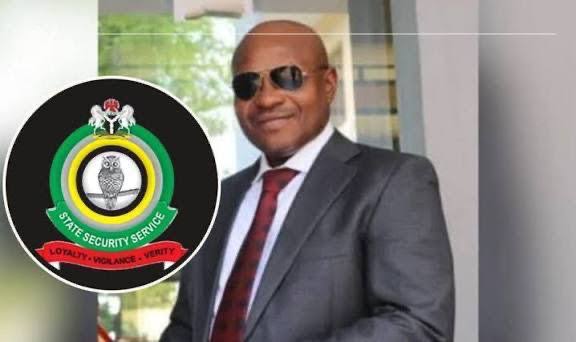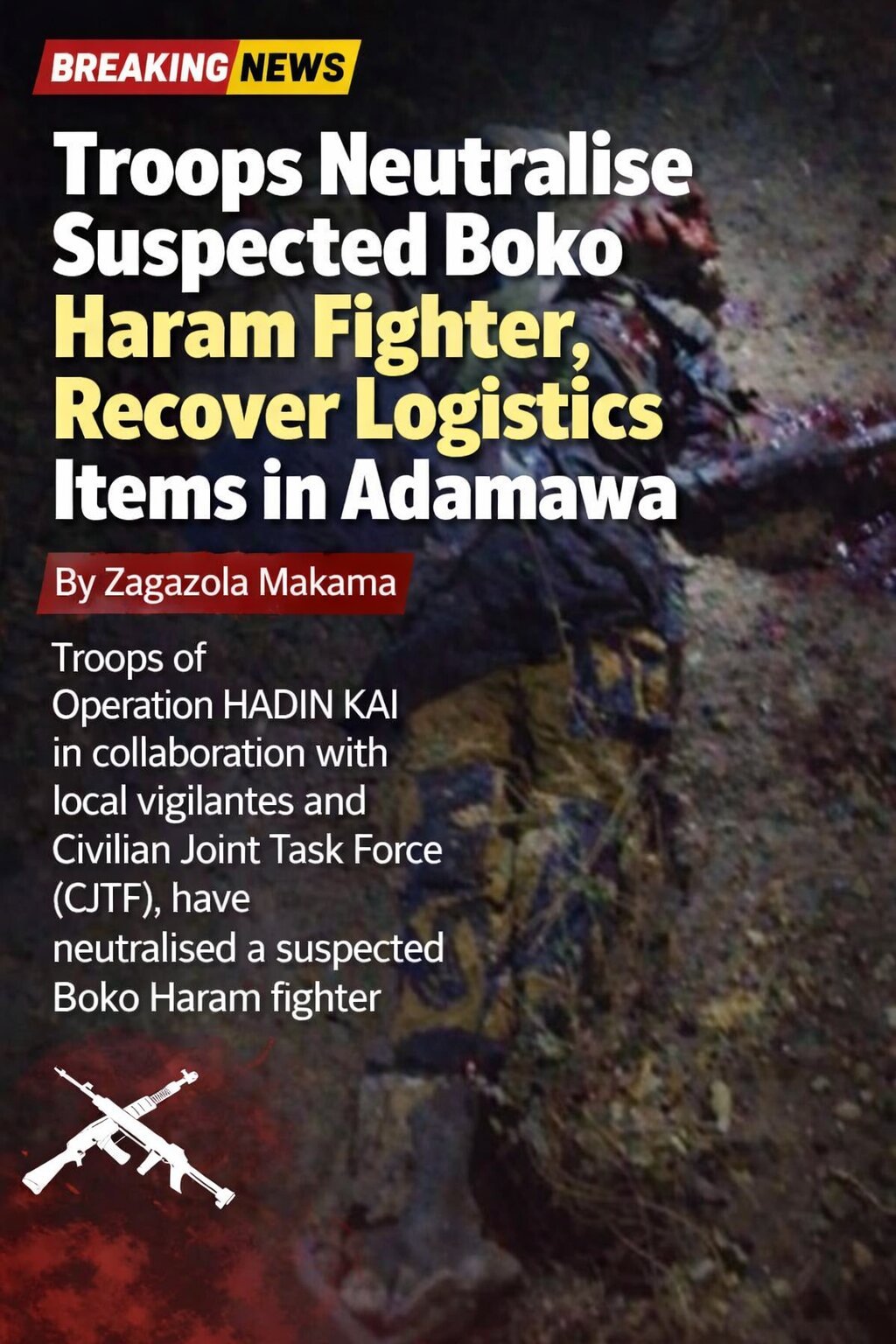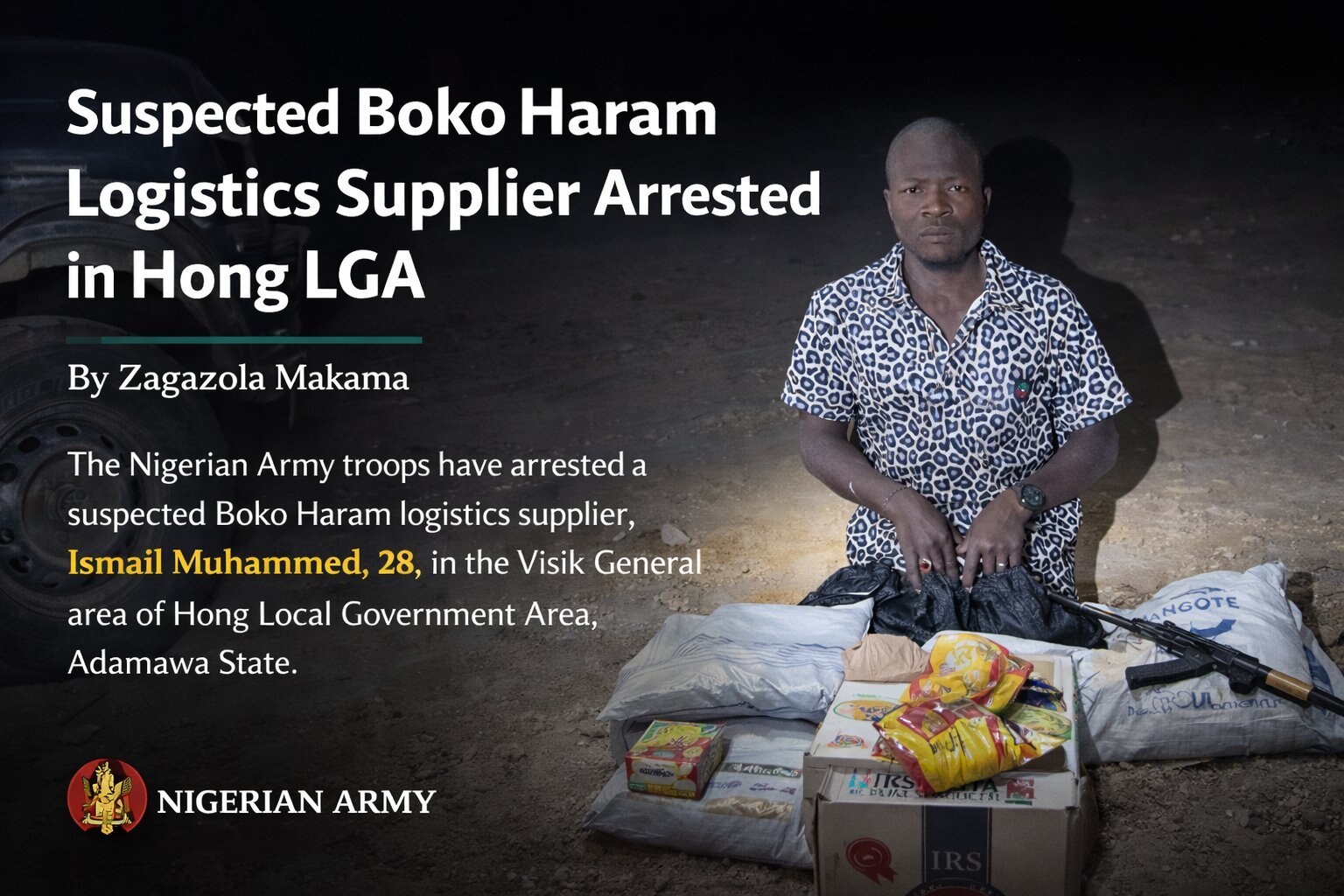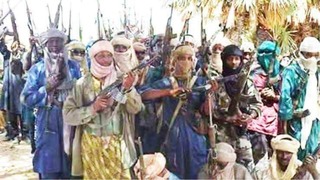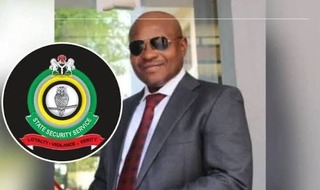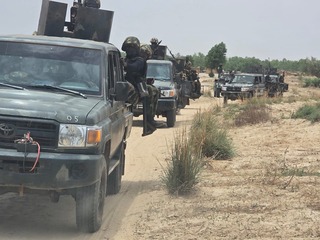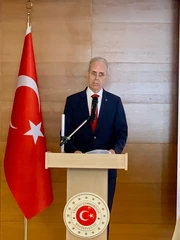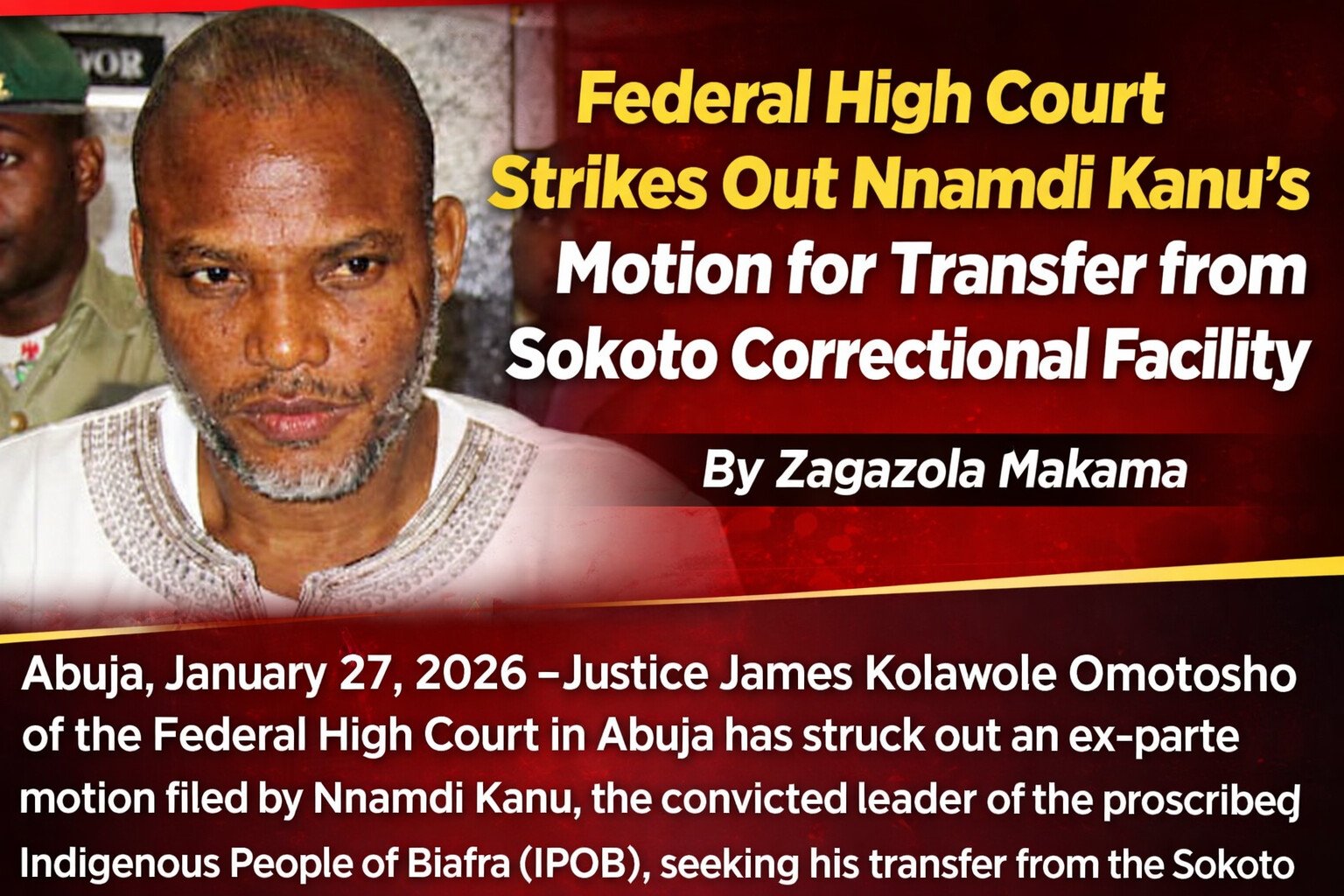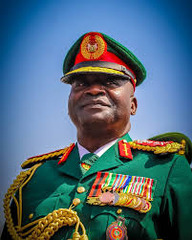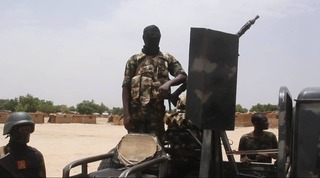DG Ajayi’s reforms reposition SSS for stronger terrorism prosecution
By: Zagazola Makama
When Oluwatosin Adeola Ajayi assumed office as the Director-General of the Department of State Services (DSS) in August 2024, few could have predicted how quickly his reforms would reshape Nigeria’s counter-terrorism justice landscape.
Barely 15 months later, the nation’s courts are witnessing a renewed momentum in terrorism-related trials, victims’ families are finding long-awaited closure, and security analysts are beginning to speak of a “prosecution renaissance” driven by the DG’s quiet but firm leadership philosophy: discipline, diligence and results.
A mandate defined by clarity and courage. Ajayi’s first directive upon assumption of office set the tone for what has become a transformative tenure. He ordered a comprehensive review of all inherited terrorism cases and mandated that forensic-backed investigations must accompany every prosecution henceforth.
Another earliest directives after assuming office was the immediate review of all terrorism related and sensitive detention cases. This review led to the release of individuals found to have been held without proper legal basis, a decision that earned the DSS commendation from civil liberty advocates.
An officer familiar with the process told Zagazola: “The DG insisted that every file must be accounted for. If someone had no legal basis to remain in custody, they were to be released immediately. If any officer was responsible for unlawful detention, they would face disciplinary action. That’s how he works, firm but fair.”
The directive was more than administrative housekeeping. It was a signal that the era of stalled cases, weak evidentiary trails, and avoidable adjournments was over. In its place emerged a system propelled by depth, accuracy and airtight investigative processes capable of withstanding judicial scrutiny. One of the clearest indicators of Ajayi’s impact is the recent conviction of Ismaila, known as Mai Tangaran, a senior leader of the Islamic State of West Africa Province (ISWAP).
The suspect, who coordinated the 2012 Bompai Police Headquarters attack in Kano, had been facing trial since 2017. On Nov. 18, 2025, he finally pleaded guilty and was convicted on a four-count terrorism charge. Justice Emeka Nwite, presiding at the Federal High Court, sentenced him to terms of 15 and 20 years, to run concurrently.
According to insiders, the breakthrough was largely due to the DG’s insistence on renewed forensic work on older files, ensuring that even complex, drawn-out cases received the resources required for successful conclusion. Indeed under Ajayi’s watch, the service recorded a major strategic win with the filing of terrorism charges against seven IPOB commanders and collaborators linked to Finland-based Simon Ekpa.
The suspects a network of commanders, arms couriers, ESN foot soldiers and financiers were arraigned in Abuja on Nov. 19 with case numbers FHC/ABJ/CR/632/2025, FHC/ABJ/CR/633/2025, and FHC/ABJ/CR/634/2025.
A key figure among them, Ibrahim Ali Larabo, an unlicensed BDC operator and illegal immigrant from Niger Republic, allegedly received and moved large sums to finance attacks in the southeast. This marks one of the most significant disruptions of IPOB’s foreign-funded terror logistics chain a success many attribute to Ajayi’s intelligence-driven, inter-agency collaborative model. In a justice system often overwhelmed by complex terror trials, the DG’s operational clarity has quickened the pace of longstanding prosecutions.
Among the cases now back on fast track is the trial of Mahmud Muhammad Usman (Mamuda) and Abubakar Abba (Abu Baara), both internationally wanted terror suspects whose hearings are set to resume on Jan. 15, 2026.
Similarly, the prosecution of Khalid Al-Barnawi mastermind of the 2011 UN building bombing is progressing steadily, with four other accomplices standing trial alongside him.
A DSS prosecutor who asked not to be named told Zagazola that: “What has changed is the willpower. The DG demands daily updates, removes bureaucratic delays, and ensures that prosecutors, analysts and investigators work as one unit.”
When President Bola Tinubu ordered the immediate arrest of perpetrators of recent killings in Benue and Plateau states, the DG moved swiftly. Within weeks, 10 suspects were apprehended and are now being prosecuted. Equally awaiting arraignment is Abdulazeez Obadaki (Bomboy), an ISWAP commander linked to the Owo church massacre and the Deeper Life Church, Okene attack. His confession, according to DSS officials, followed painstaking intelligence work and coordinated field operations. Another high-value suspect, Musa Abubakar, an arms manufacturer arrested in Plateau, is also set for arraignment.
And finally, the sentencing of Nnamdi Kanu, leader of the proscribed Indigenous People of Biafra (IPOB), to life imprisonment by Justice James Omotosho who handed Kanu a life sentence on Counts 4, 5 and 6 of the terrorism charges against him, and 20 years on Count 2.
has added a defining chapter to the ongoing transformation of Nigeria’s counter-terrorism justice system, with credit to the DSS. The conviction marks one of the most consequential terrorism judgments in recent years. The conclusion of Kanu’s trial during Ajayi’s tenure is a symbolic moment. It reflects the DG’s commitment to strengthening the prosecutorial chain, deepening investigations, and ensuring that no terrorism case, no matter how politically sensitive, remains unresolved.
Ajayi’s leadership, insiders say, is defined by two unwavering principles: respect for the rule of law and intolerance for indiscipline. These principles have shaped both the service’s operations and its internal culture. Ajayi’s insistence on discipline extended deep into the internal structure of the DSS. In one of the service’s most far-reaching integrity reforms, the DSS dismissed 115 personnel found guilty of misconduct or actions inconsistent with the agency’s values.
The dismissal, announced in a statement on X, formed part of the ongoing internal reforms championed by the DG, As part of the ongoing reforms in the Department of State Services (DSS). The decision sent a strong message that the DG would not allow misconduct to undermine the agency’s credibility, especially at a time when the DSS was taking on some of the country’s most sensitive terrorism cases.
Under the DG’s reform agenda, the prosecution of terrorism suspects moved with a renewed sense of urgency, evidence depth and inter-agency coordination. The momentum has been felt across several high-profile cases.
His insistence on forensic-backed investigations, daily case reviews and strong collaboration with the Ministry of Justice has eliminated many of the traditional bottlenecks that hindered terrorism trials. What sets Ajayi apart is his balanced approach: while he demands strict professionalism from officers, he equally emphasises respect for citizens’ rights.
His tenure has seen the release of several detainees once investigations confirmed they had no case to answer. At the same time, suspects with established links to terrorism networks including financiers, recruiters, arms couriers and commanders are being prosecuted more vigorously than at any time in the last ten years.
A senior security personnel told Zagazola that
“He is that rare type of intelligence leader disciplined, fair, forward-thinking and utterly intolerant of abuses. His reforms strengthened the system, protected citizens and delivered justice.”
With terrorism trials progressing at unprecedented speed and internal reforms restoring the DSS’s professional integrity, many believe Ajayi is laying the foundation for a more just and secure Nigeria.
The life sentence handed to Nnamdi Kanu, the tightening of terrorism financing networks, the prosecution of violent extremist groups, and the cleansing of the agency’s internal ranks all point to one conclusion under Ajayi’s leadership, the DSS has entered a new era.
As one retired intelligence officer put it:
“Ajayi is not just leading the DSS. He is rebuilding it case by case, reform by reform, and decision by decision.”
Zagazola Makama is a Counter Insurgency Expert and Security Expert and Security Analyst in the Lake Chad region

